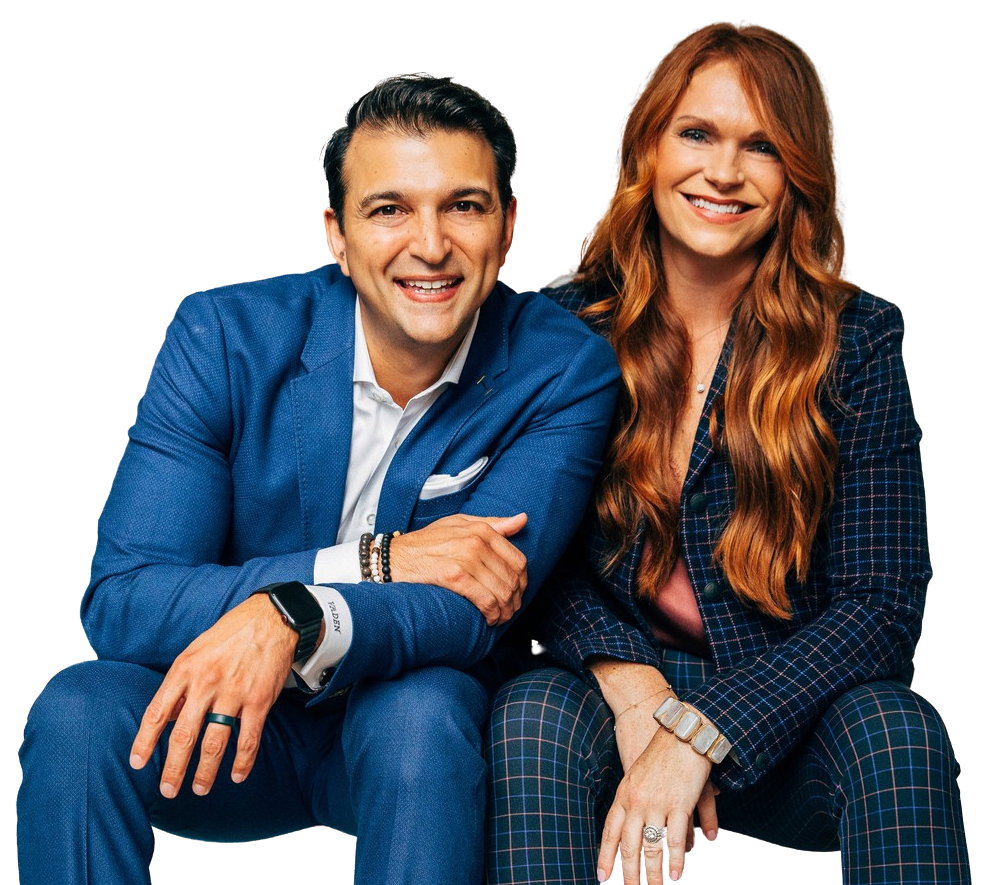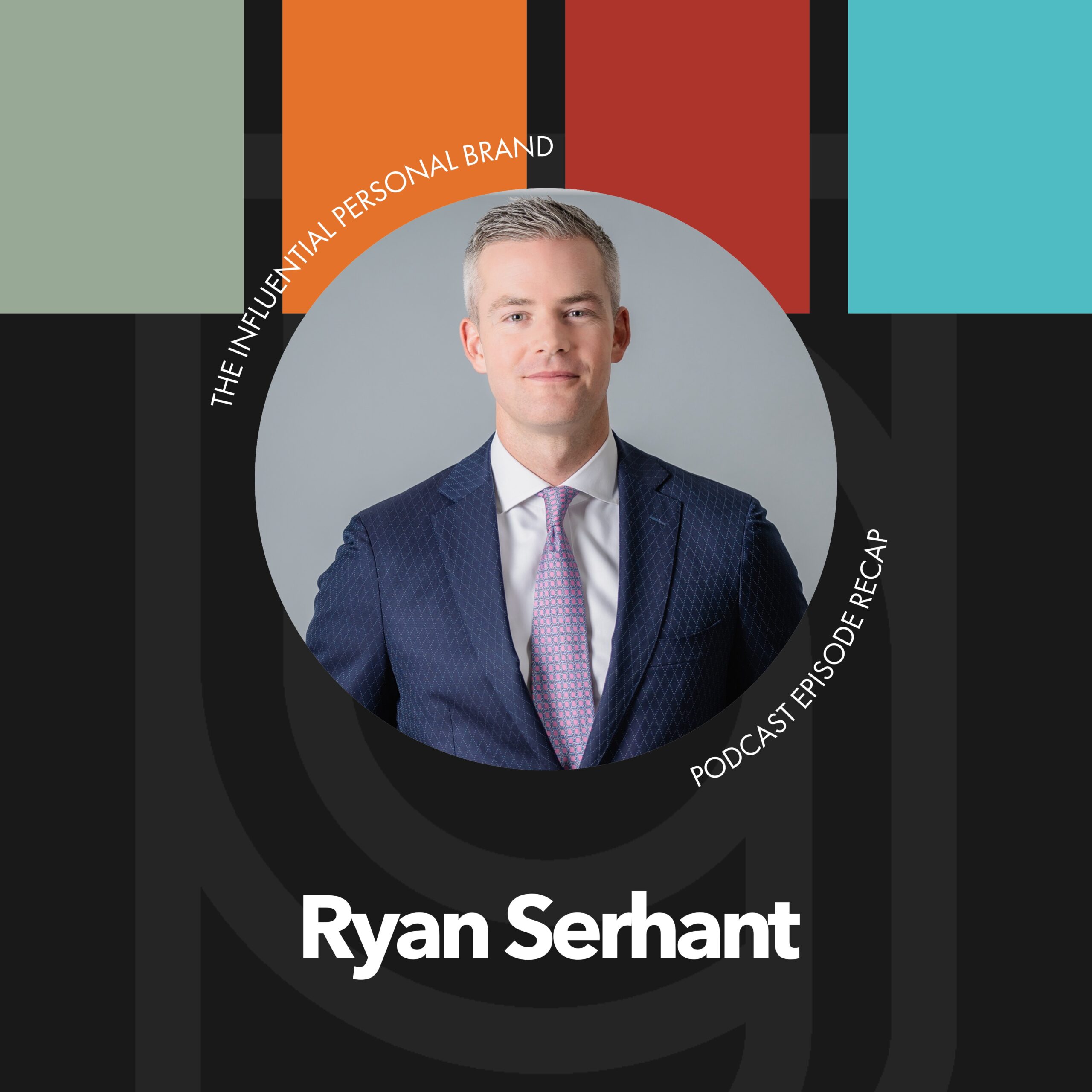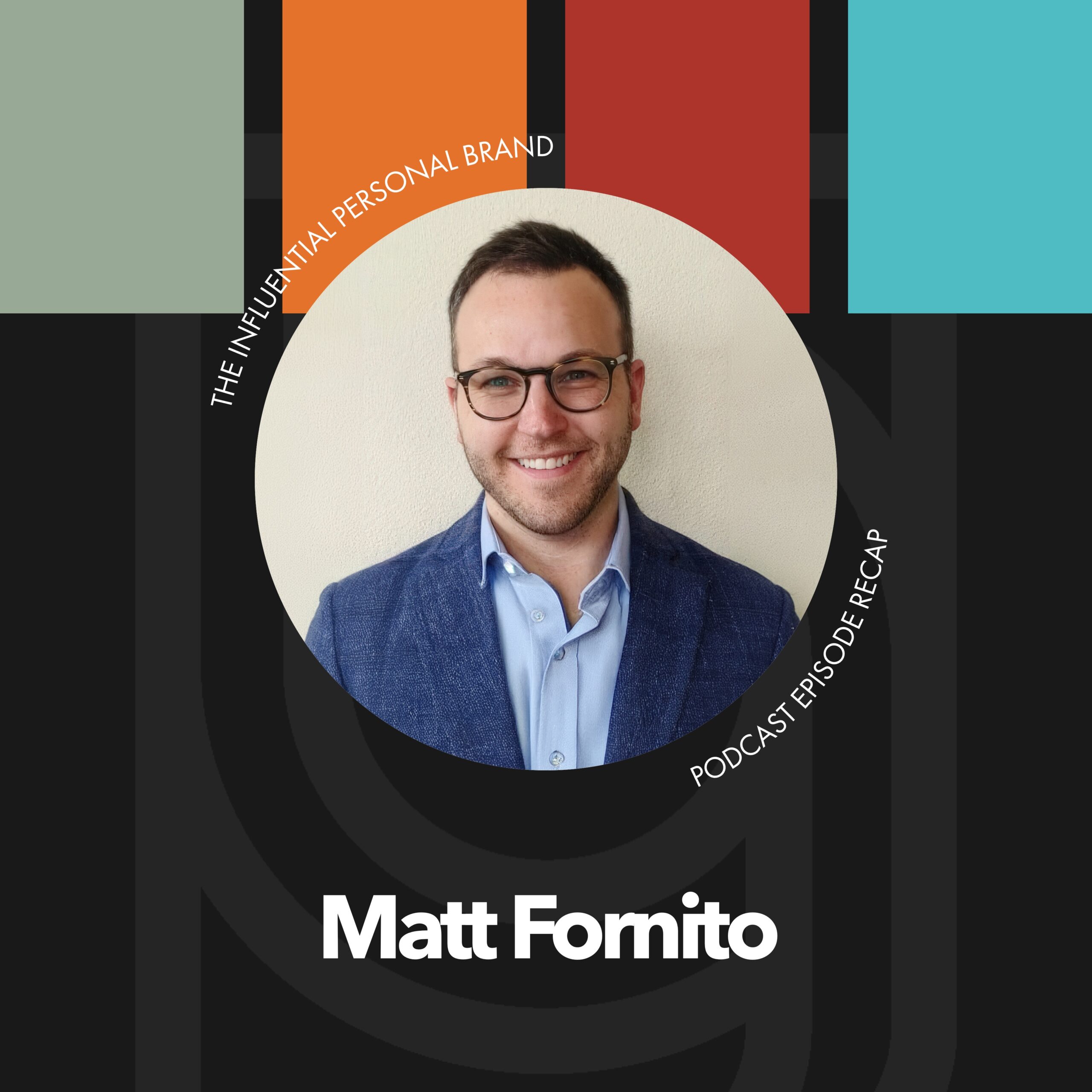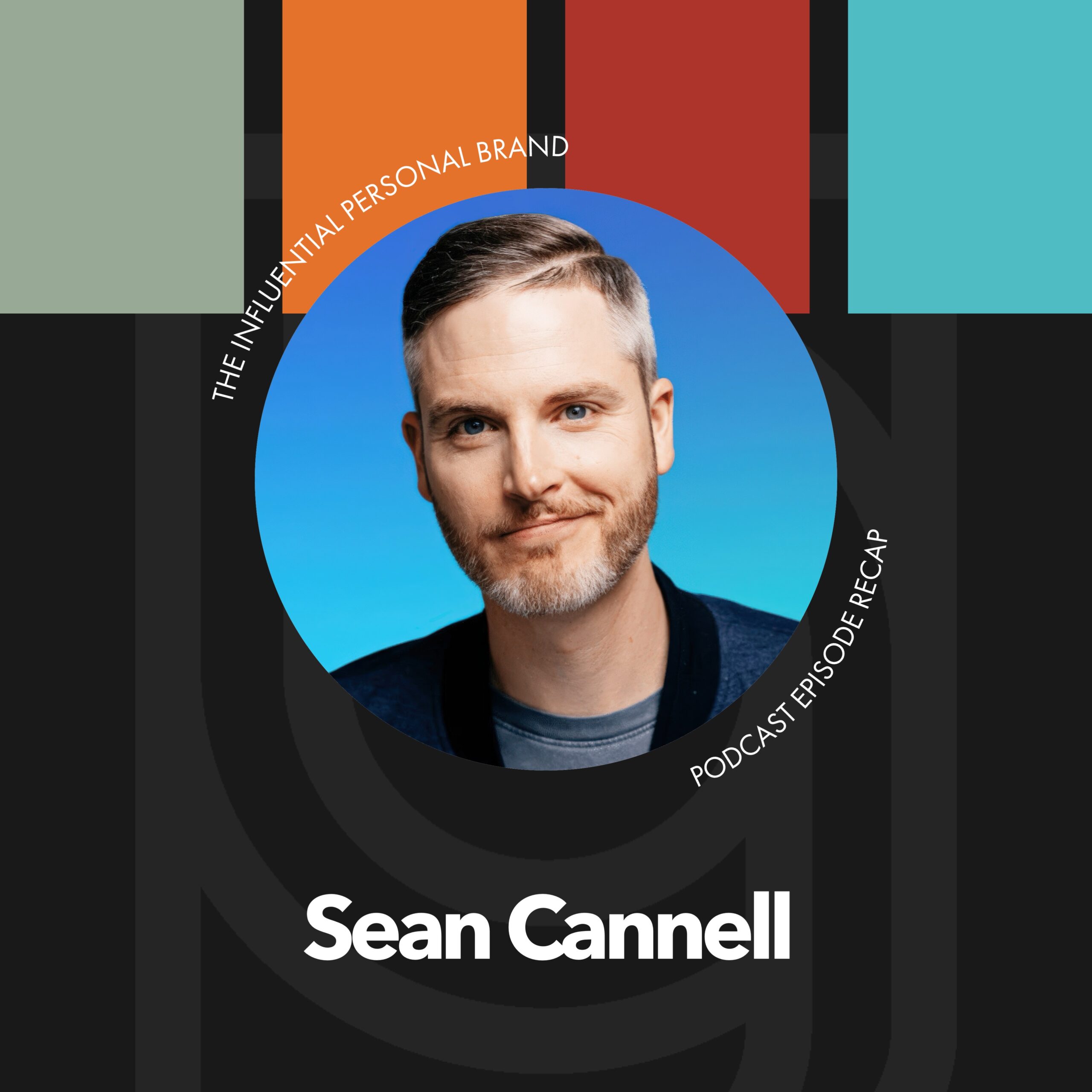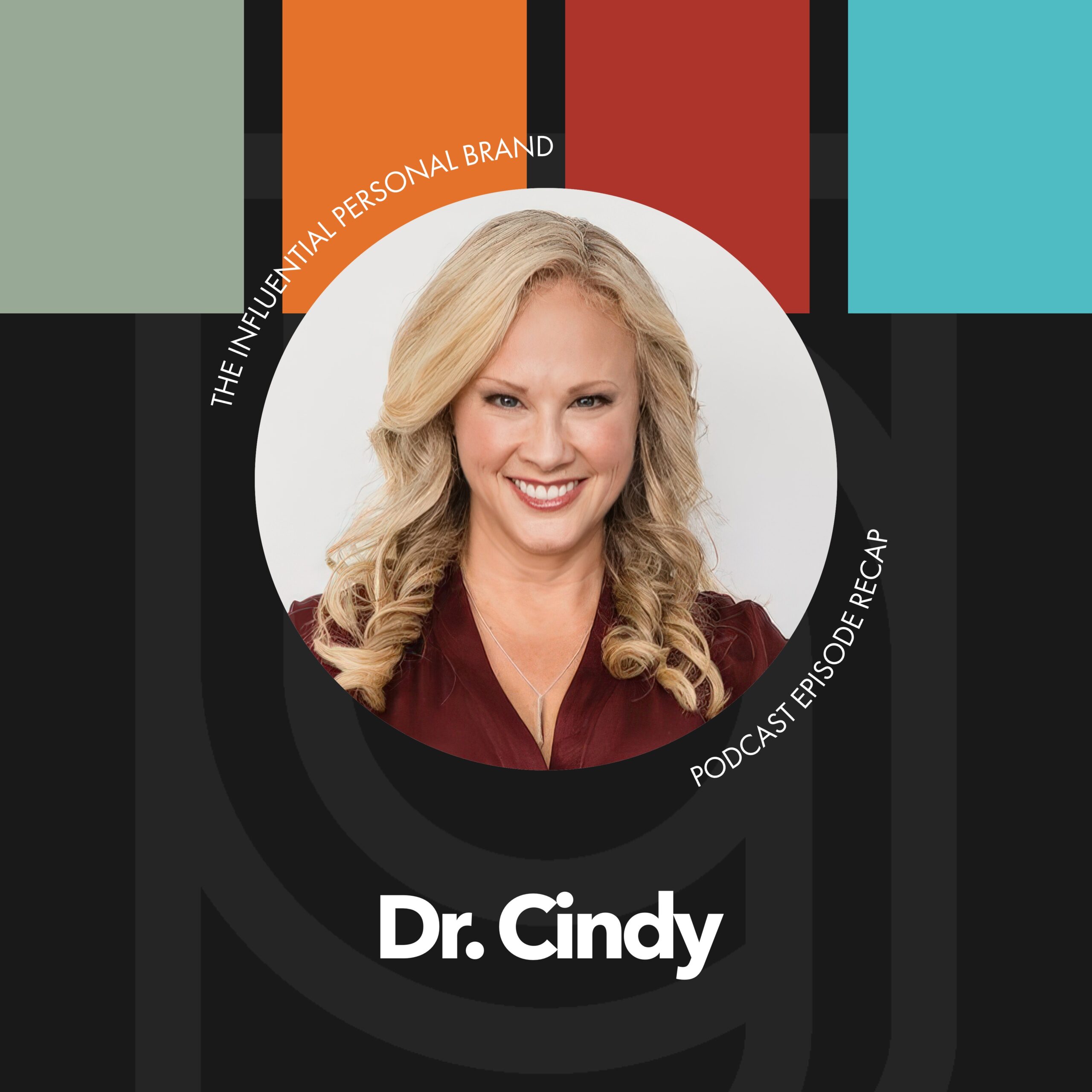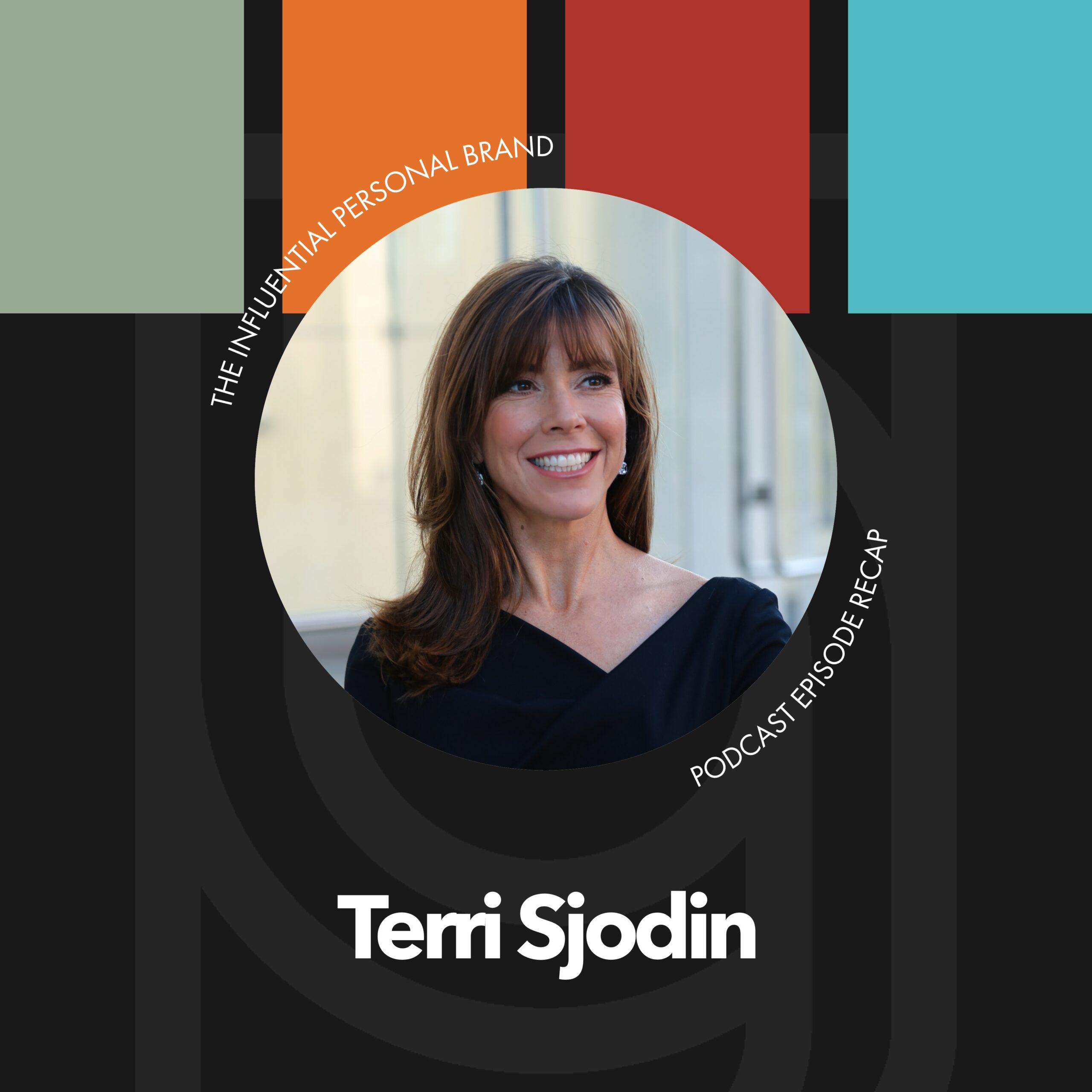RV (00:02):
Chester Elton was our guest this week on the influential personal brand. And this is the recap edition of that episode. I am joined by my partner in shine, AJ Vaden we’re breaking down the interview because you know, we both know Chester for a really long time. We haven’t seen him in a while, but he was an influential person in our, in our life. And so it was great to reconnect and Aj, welcome to the show. Looking forward to getting your thoughts on this,
AJV (00:32):
Looking forward to giving you all my many opinions.
RV (00:37):
Yeah, so I think looking back at this episode, to me, it really was about how to dominate a niche. And that is something that chester and his writing partner business partner, Adrian have really done. They’ve, you know, they were the carrot guys and they carved out this like very specific niche that they have just dominated for decades at this point. And my first big takeaway, which is going to be something near and dear to your heart, AJ I know it’s just having proprietary data helps you dominate. And, you know, I look at when I look at some of our, the most successful like speakers specifically that we’d know, I think Sally hogshead and Jason Dorsey and I think David horsehager and Chester Elton, and it’s like these folk, Tom Rath, these folks have proprietary data that really is real data. And it really helps you kind of like define a niche. I also think of Michael Stelzner does this really well with social media, Chalene Johnson
AJV (01:46):
And the list goes on.
RV (01:47):
It goes on. So that was my first big takeaway. And I know obviously in the, not so distant past you lead our national research study trends and personal branding. And so I, I figured, I don’t know if that stuck out to you, but that was a big takeaway for me.
AJV (02:03):
Yeah, that’s that was my first point, probably in a little bit different context than you just shared. But I did, I literally highlighted this quote with that having proprietary data helps you dominate period. It helps you dominate. It helps you get on media and helps you clarify your niche. It helps you reach a new target demographics. It helps you with credibility. It helps you in so many different ways. It helps your content strategy. Like there’s countless ways that it helps. But one of the things that really stuck out to me that I thought was really important in this interview is that EBIT, it’s not just having the data. You have to understand the data and that data gives you credibility, but it’s not necessarily the data points that people remember. It’s the stories that people remember. And because you have what your job is as the owner of the data is to learn how to truly understand RVit and interpret that data to the general public, and then take that and create a story with that data that helps your audience.
AJV (03:16):
So to me, it’s like having the data is the given it’s the requirement, it’s the necessity. We’ve probably heard it 12 times this year. So far, that data is the new differentiator, right? It is the new competitive advantage. It’s like information and data and proprietary data is the new competitive advantage. But having the data really isn’t good enough, right? You have to understand the data you have to interpret. The data we have to do is take that data and create stories. That mean something to your audience, because it’s the stories that they’ll remember. And so, as an example from this interview, I thought these were some things that stuck out to me is that he had, they had a a hundred thousand people take this motivators assessment, right? And of that 18% referenced, severe anxiety at work. But by 2020, that 18% had turned into 30% of the workforce.
AJV (04:24):
But then if you just parcel that out and just look at millennials and gen Z, it was 42%. And the story that really started to form for me is, you know, our, our kids are the generation right after gen Z. So I’m like, well, gosh, what if like, if we don’t start making some serious changes, like what does that look like for my kids? And what you’re saying that we’re telling these young people who are graduating high school or college, or, you know, trade schools were saying, the moment you entered the workforce, almost half of you will experience severe anxiety.
Speaker 3 (05:04):
What, so
AJV (05:05):
Those are the things to me, it’s like, it’s the data, but it’s really the story that the data tells that I think you really have to own. So I know that was a long point. I’m like the other one’s shorter, but that was most significant to me. Yeah,
RV (05:17):
No, that’s, that’s good. I mean, it’s hard enough to get data and then it’s hard to interpret it and make it and make it applicable. And that’s one thing that they’ve done. And, and so I thought that was good. So the other thing that stuck out to me from this specific interview, obviously Chester and Adrian have sold, sold a lot of books and they’ve gotten a pretty sure portfolio is, is who they publish with, or have published most of them with. And just, just a good reminder, which we know. And we, we talk about and we you know, we teach people, but what publishers are really buying is your marketing plan. It’s it’s the, the author’s job is to sell the books. And we actually did our bestseller launch plan event last week at the time of get compared to this recording when, when we’re actually recording this. And one of the things that we said, which we’d never really said before, so clearly is that most authors build a book and then try to build an audience. And it’s extremely difficult. Like you have to build the audience first and then build the book for the audience. That’s how the book, that’s how the book becomes successful. And so anyways, I just thought that was a good reminder as always to, to just go, yeah, like a huge part of this is just marketing. Not necessarily who has the best ideas.
AJV (06:39):
No, I think that’s really good at that. Did not make it on my top three lists. So that’s, that was good.
Speaker 3 (06:44):
I didn’t even pick up on that,
AJV (06:47):
But that’s true, right? It’s like, if you have the audience then it can carry any product or service versus build the product and then try to build the audience. That’s really good. No, my, my second thing is probably just something that resonated with me stronger is that if you try to be too many things to too many people, you become nothing, right. If you become too many things to too many people, you become nothing. And I love this. And he said, it became really clear to Chester that the place where business people go, his audience with LinkedIn, and we’ve had this discussion in our house here recently
Speaker 3 (07:25):
About like, think about it. All right. So that’s probably
AJV (07:28):
Why it just really stuck out to me is that, you know, linked in is the place where this professional crowd goes to source information, find service providers, you know, do all the things. And it’s not that Instagram and Twitter and TechTalk and Facebook and YouTube, aren’t other really important platforms. That’s not what I’m saying. But I thought this was just really good is that you got to figure out where’s your place and what is the thing that you want to be to your people? And what place are those people going? And, you know, he said it was LinkedIn. So we went all in on LinkedIn and because they went all in on LinkedIn they got into this influencers program and because they got into this influencers program really, really early, they got more opportunities and then more opportunities and more opportunities.
AJV (08:18):
And to me, I think that just is, it speaks really, really clearly to a lot of our audience where it’s so overwhelming to think about, okay, I’ve got to create content for all these different platforms. And some of it needs to be original, some can be repurposed, and then I’ve got to do all these things and all these platforms, which is, I think is really important. Right. And I think you do need to be all the places, but it’s how much of you needs to be in all the places. And what if you just said, okay, I’m going to do what I need to do to make sure I’m spreading my content everywhere, but I’m also going to go all in on the one platform that I most resonate that my audience modes, my audience most resonates in, and I’m going to just like double down on that. And that was LinkedIn for them because they said, that’s where we found that business people go. So that’s probably also my platform, which is why it stuck
Speaker 3 (09:06):
Out to me that it was really just
AJV (09:08):
A great reminder of you don’t have to be all the places all the time and be all the things to all the people. Yeah,
RV (09:14):
No, I think, I think that’s, I think that’s true. I mean, for me, like, I, for whatever reason, I’m drawn to Instagram, like just the usability of it. We post stuff on LinkedIn on Facebook, but like I spend most of my personal time on LinkedIn and I think it’s sorry, did I say Lee? I said, LinkedIn, I meant Instagram. Yeah, yeah, yeah, yeah. Whereas you’re, you know, you’re more on LinkedIn and I think, well, it’s interesting when
AJV (09:38):
It comes to personal I’m on Instagram way more.
Speaker 3 (09:44):
Right, right. That’s really cool. But
RV (09:45):
Your voice as a content creator is more for LinkedIn. Yeah. Yeah. Well, you know, to that note, so this was my third takeaway, which it was powerful to hear him say this. Cause I’ve, I’ve thought about this before. And I’ve, I’ve kind of heard some studies, although they seem not super reliable, but that it takes four or five impressions for someone to buy your book. You know, and I’ve heard all sorts of numbers. That’s why I’m saying like, there’s a, for different studies quoted on this, but not in any that were totally authoritative that I feel confident repurposing here, but just as, as a kind of like a general you know, anecdotal, anecdotal kind of an observation that he was making, which I would totally agree with is that, you know, people have to see you in multiple places. Like it’s not just enough for them to be like, oh, I saw you, this, this one post from you over here.
RV (10:42):
Like that’s not really when they buy it’s when it’s like, oh, I heard you on this podcast. And now, you know, I just saw your book on a shelf and Hey, here you are. Here’s an ad for your webinar funnel in my feed. And oh, look, you’re speaking at my company’s event next month. Right. And it’s like, that kind of triangulation needs to happen to where you really start, I think, breaking through the wall and creating massive gravity. So, you know, it’s, it’s kind of like figuring out what, where you can, you can dominate well, but also when you do this, you kind of start to surround people. And just, just knowing that if people buy from you, they typically aren’t going to just buy the ferry first time they see you. It’s going to be more of like millennium, multiple impressions. I know. Talk about
AJV (11:28):
That. No, it’s, it’s kind of like it’s like you intentionally kick in not reticular activation. Right. You know, it’s like, it’s an intentional effort to spark an individual’s particular activation where, you know, and it’s a real fancy word that I don’t use very often activating
RV (11:50):
System. It’s like a, yeah, it’s a neurological, like a, once you become
AJV (11:55):
Intrigued with something, like if I was shopping for a new car and I’m shopping for, you know, and in a new Infiniti SUV and I’m looking at white infinities, the next thing I know, I’ll see white infinities everywhere I go. And it’s like, it’s like now your, your mind has like tuned into like, oh, I’m noticing something that I didn’t notice before. And I do, I do agree that being in so many places really helps nurture that. And and it’s like, y’all all go all in, in one place. But that doesn’t mean you ignore all the others. So the third thing that I wrote down was two parts. And he said, the most important thing is consistency. And we have heard that from every single person who has ever been on this show
Speaker 3 (12:33):
Or ever in the history of life and
AJV (12:36):
Conversation. So that is not new, but such an important reminder across the board where like, if you’re posting once a month on LinkedIn, or once a week on Instagram, like that’s probably not going to do it for
Speaker 3 (12:49):
You to get you there. Don’t be frustrated
AJV (12:52):
When it’s not working. Right. It’s like, you know what? I’ve had clients before. It’s like, well, you know, we built it and no one came well, that’s not really how it works. It’s like build it and then market it, then promote it and then put paid ads to it and then talk about it everywhere you go. And then maybe people will come. But I also love what he said is that so much of it is trial and error. So allow yourself the grace to try and fail and then try again. And then sometimes when, but it’s trial and error for each of us and that’s okay. Don’t think you have to have it all mapped out and have it perfect. The first time some of this just is figuring out what resonates, where do people go? What is your preferred medium? And it’s like, but you got to do it consistently enough to even have an opportunity to have some trial and
Speaker 3 (13:39):
Error. It was just a little bit of grace and have a little bit of patience.
RV (13:44):
Yeah. I mean, amen to that. The consistency from a lot of it is just sticking around. I mean, tester spin at this a while as, as have, as have we as have most of our friends, really good
AJV (13:56):
Content and being super charismatic
Speaker 3 (13:58):
And like all the things that Chester is. So yeah.
RV (14:03):
Well so that’s it, you know, you’re, you’re hearing it and I think it’s great when you hear some of the same things, cause you go, oh, it’s not just one person. This is really the truth. And that’s one of the things that I love about this show as a listener is, is just hearing the real truth from people who are really out there with top, top personal brands. And they share most of the interviews we do on this show are not what they talk about on other shows like these they’re the content they share with us is it’s not what they write about in their books. They’re kind of giving us the behind the scenes journey. So I love that. We’re trying to do that. Hopefully you love that. And if you do, you know, put a shout out for us on social that we can, we can connect with you personally, leave, leave a review. And most of all, just keep coming back. We’re so grateful for you. We’ll catch you next time on the influential personal brand podcast.



